10+ Things You’re Better Off Not Doing in Bed
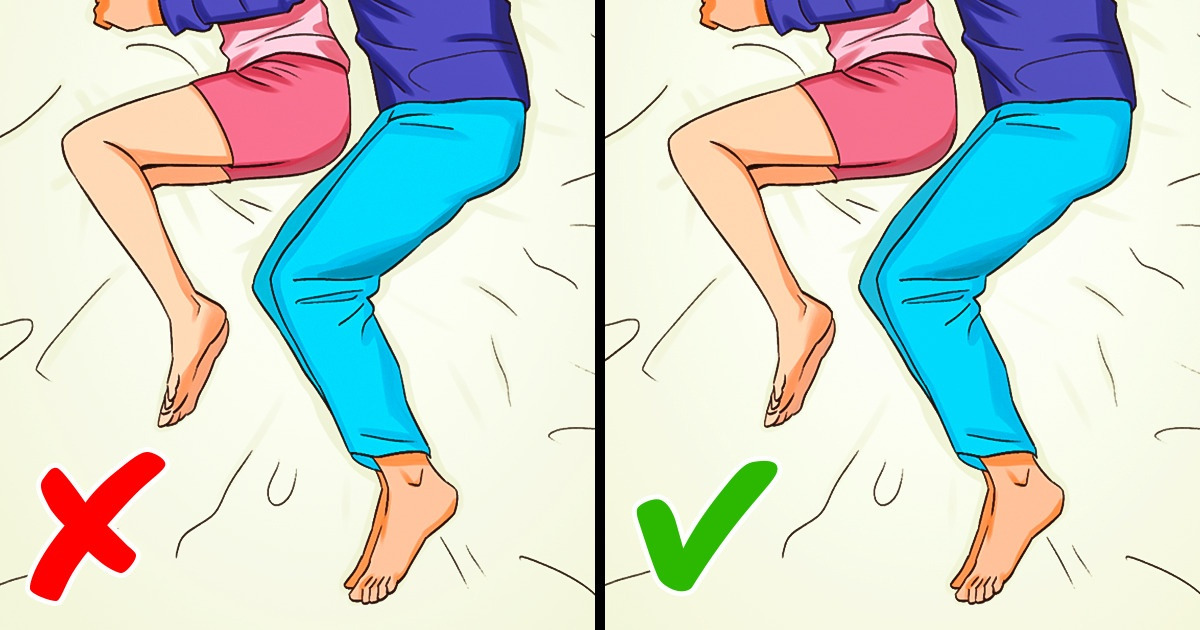
We often think of our beds as a working desk or an area where we do our daily routine. Many people find it relaxing to do activities from bed, but certain habits can influence how we start our day, and avoiding some of them can turn our life completely around.
1. Sleeping in a certain position
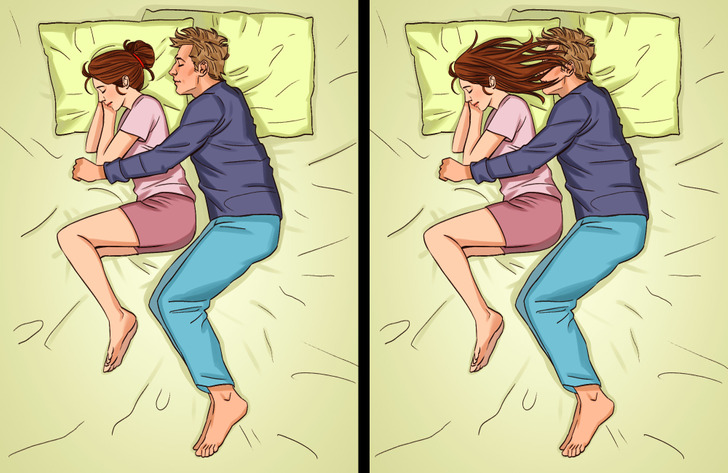
If you go to sleep in an uncomfortable position, you will always wake up tired. This will prevent your body from activating and performing certain functions when you are asleep. No matter if you are sleeping alone or with a partner, always make sure that you have enough space in the bed and that something or someone isn’t bothering you.
- Remove all the extra and uncomfortable pillows and clothes from the bed and tie your hair in a loose bun to keep it from bugging your partner.
2. Keeping a glass of water near the bed
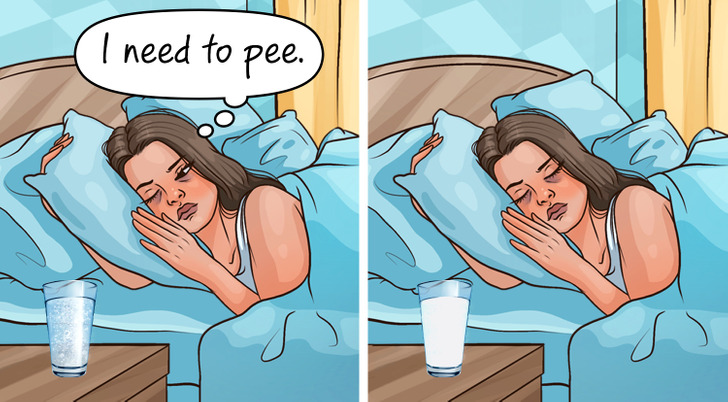
Sometimes keeping a glass of water on the bedside table can be a great way to help you remember to drink fluid before bed. If you struggle to fall asleep, the same glass of water will increase the urge to visit the bathroom and ruin your sleep. A good alternative to avoid sleepless nights is to drink a glass of milk before bed. Thanks to the compounds in milk that produce the happy hormone, your head will be clearer and you will have a restful night.
3. Watching the clock

Try to resist the urge to look at the clock if you get into bed and start checking the time, wondering when you’ll finally fall asleep. When there is a clock near us at night, we can be tempted to keep checking it, especially if we are having trouble drifting off. This increases the strength of anxiety associated with sleep, and as soon as we start to worry about sleep, we make it harder to get any.
- Set an alarm and put your phone somewhere out of reach so you won’t be tempted to grab it in the middle of the night. You can put a lamp on the bedside table as well.
4. Looking at your phone

Before going to bed, it is advised to put away any light-emitting devices for at least one hour. When you use your phone in bed, your mind gets stimulated, which serves as a signal to keep you awake. Blue light, which is emitted by electronic gadgets with backlit displays, can inhibit the release of melatonin, a crucial sleep hormone that aids in regulating our sleep/wake cycle.
- Try reading a book until you pass out instead of going through your phone until you fall asleep.
5. Watching movies or TV
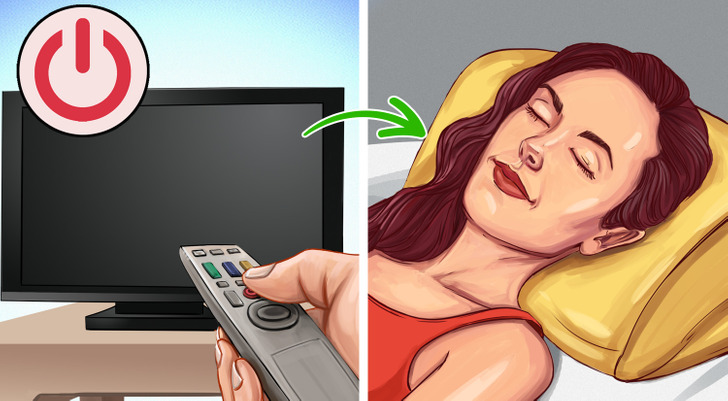
Even while you might find watching TV in bed to be soothing, by doing so, you are teaching your brain that the bed is a place for viewing TV rather than just sleeping. Additionally, even if you don’t recall the TV interrupting your sleep during the night, if you fall asleep with the TV on, level shifts and sound variations can wake you up.
- Keep the TV out of the bedroom if at all possible. Or, at the very least, watch from a chair, as this will help keep your bed a place for sleeping only.
6. Playing video games
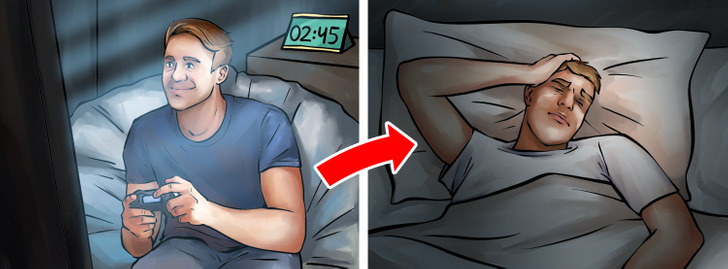
Even if you’re not particularly sensitive to light, anything that’s very engrossing, such as video games, will almost surely keep you awake and disrupt your sleep schedule. Parts of the body can be activated and excited by the stimulation from these gadgets, which makes it difficult to fall asleep.
- Try to keep the gadgets away from your bedroom at least one hour before bedtime.
7. Forcing yourself to fall asleep
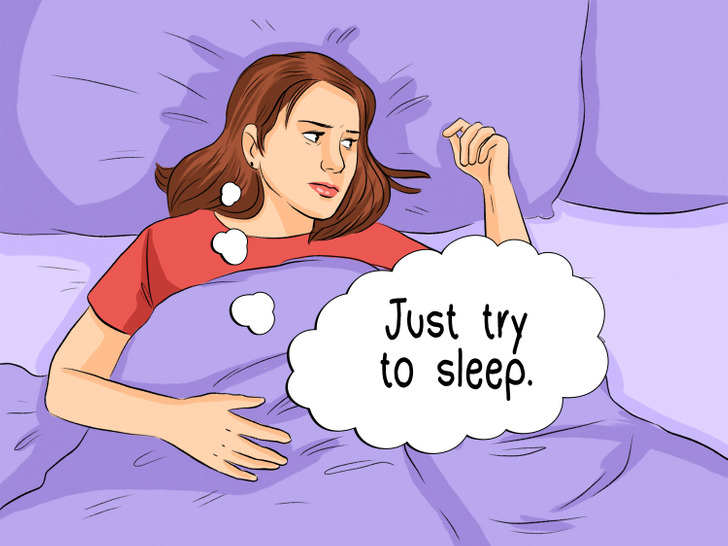
We cannot force ourselves to fall asleep or stay asleep for a set period of time or under any circumstances. Forcing or stressing about sleep will simply make matters worse because your body will fall asleep when it’s ready.
- Prepare the environment for sleep and wait for events to unfold. Try not to think about it.
8. Listening to music
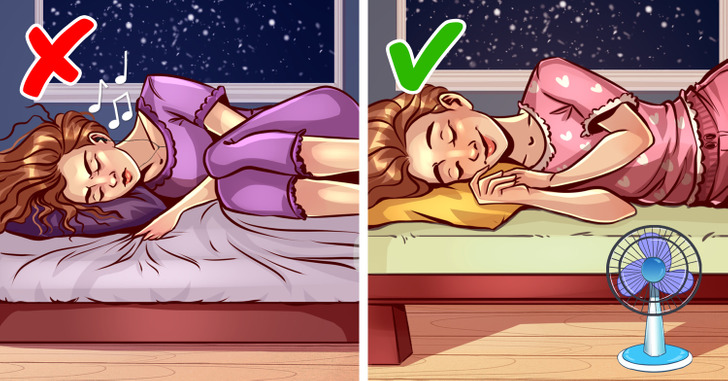
Despite how soothing it might sound, listening to music before bed isn’t an ideal practice. Dopamine spikes in the brain brought on by music can improve mood but also increase body temperature and heart rate, which will keep you from falling asleep.
- Activate a fan or a white noise machine if you require some background noise.
9. Having a bedtime snack
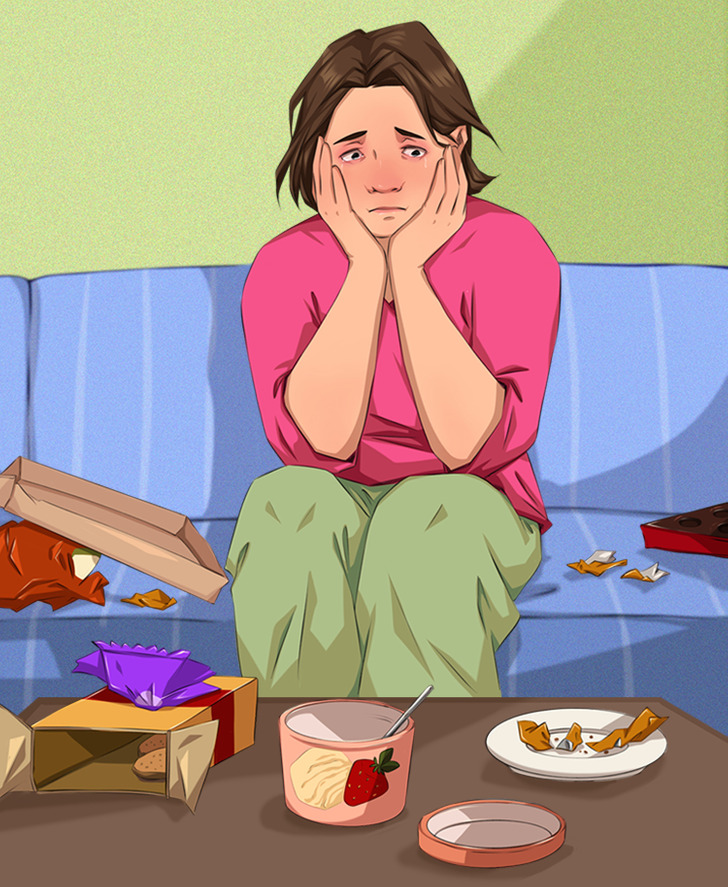
According to research, eating within the hour before bedtime can reduce the quantity and quality of sleep, particularly for women. The amount of REM sleep that people experience appears to be reduced, especially after consuming higher amounts of food before bed.
- Eat whole grains with protein, such as natural peanut butter on whole-wheat toast, if you’re hungry late at night.
10. Drinking tea
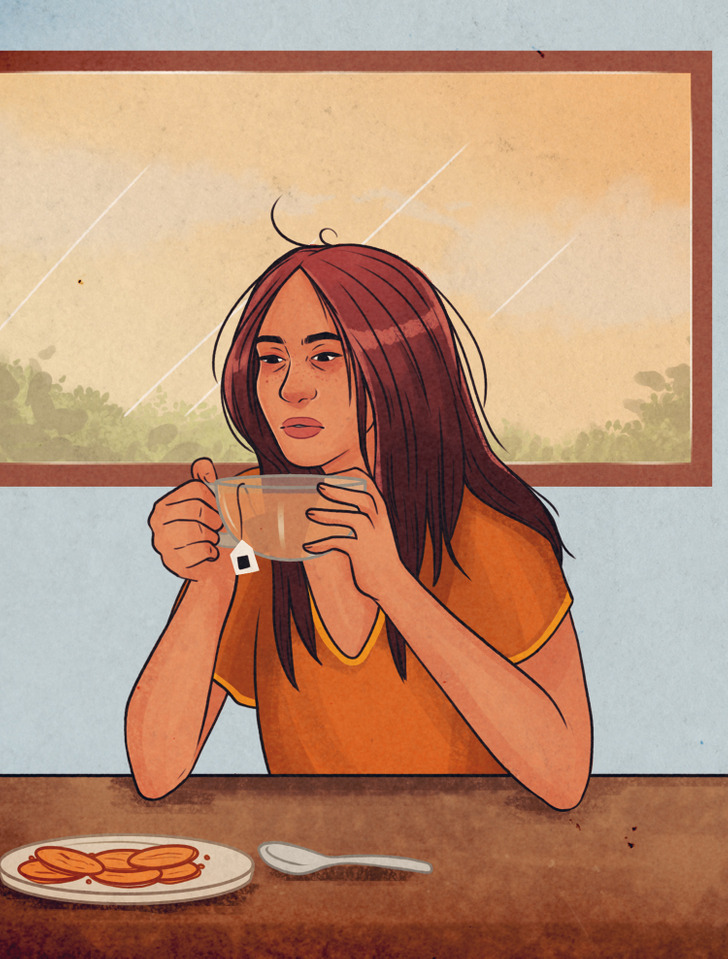
Even if you don’t drink coffee before bed, you might not be as cautious when it comes to tea, which is a significant source of caffeine. Herbal teas with flavors like peppermint or chamomile are likely caffeine-free, but teas made with black or white tea leaves do include the stimulant.
- To enjoy the flavor without the stimulant, put your teabag briefly into a cup of hot water, drain it out, and then brew another cup with the same tea bag. The majority of the tea’s caffeine will have been released by then.
11. Working in bed
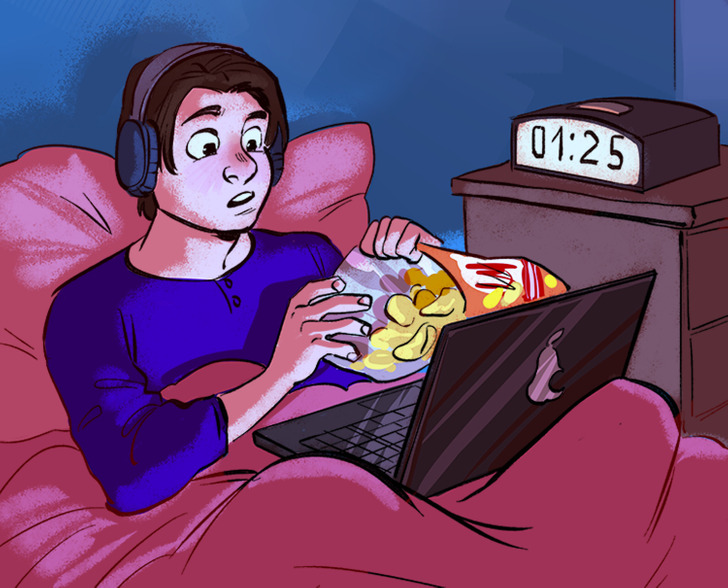
A late-night check-in with the workplace and stress about your job are more likely to leave you feeling anxious or upset or keep you thinking about things you have to get done the next day. Unfortunately, the more time we spend working in bed, the more our brains start to believe that this is the best position to be awake and productive, but it’s completely the opposite. This may make it difficult to get to sleep at night or stay asleep.
Do you have any bad habits that you do every night before bed?